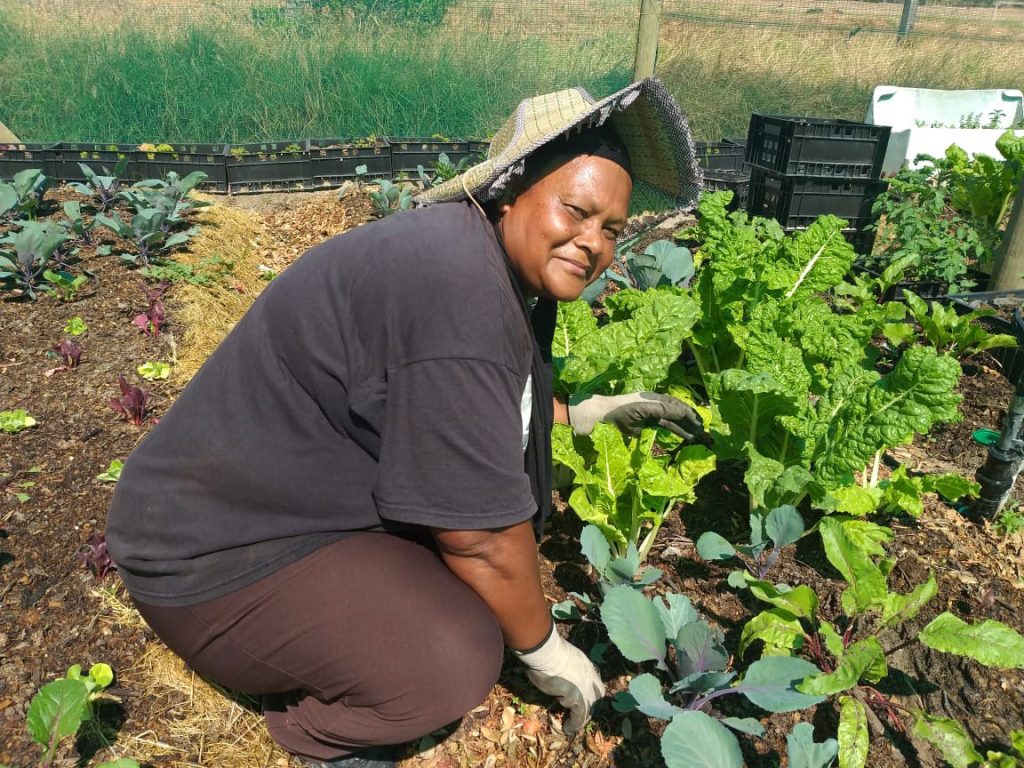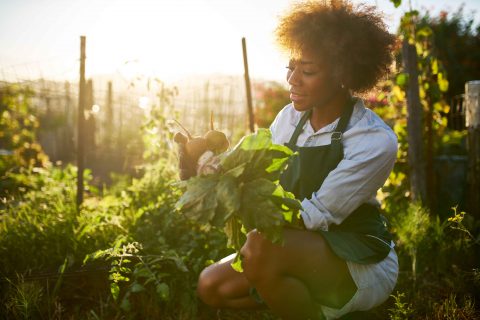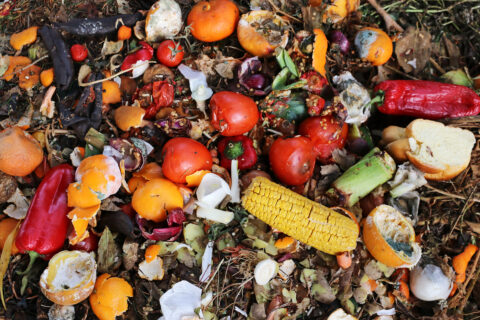Food Basket
By The People For The People
The life changing garden
The Life Changing Garden is a collaboration between The Greater Tygerberg Partnership (GTP) and MES-Safe Space, Xylem and GrowZA. GTP, MES-Safe Space, Xylem (a water solutions company) and GrowZA (a nonprofit organisation that facilitates economic growth and enterprise development) have partnered with a common goal: to develop a thriving urban agriculture and learning centre that benefits the entire community.
However, the Life Changing Garden was first started by a resident of MES (Mould Empower Serve), a refuge for the homeless and vulnerable in the Bellville CBD. The goal of the food garden is not only income generation and improved health, nutrition, and food security for MES-Safe Space, but also to encourage surrounding communities to start their own food gardens, says Craig Kensley, director of GrowZA.
The Greater Tygerberg Partnership joined the gardening initiative in February 2021, with Warren Hewitt, CEO of GTP, stating that the devastating global pandemic has glaringly highlighted the importance of water and food security and helping the poor.
Kensley says: “Water security and food security are integrally linked, and the Life Changing Garden stands as an example of what is possible when civil society and the private sector collaborate smartly.”
The garden is currently 300sqm and grows kale, cabbage, lettuce, parsley, spring onions, turnips, beetroot, and leeks. Fresh produce is sold daily at just R10 per item, and veggie boxes are available at R50 each. The proceeds are ploughed back into the garden project.
All the work in the garden is done by hand to reduce water wastage, and the borehole ensures sustainability. Borehole water, no inorganic pesticide or artificial fertiliser use, and the no-dig system add to the quality of the harvest and the overall productivity of the garden.
Beneficiaries at MES-Safe Space, which also aims to teach its residents to live independent, productive lives, can complete a 10-module training and mentorship programme with horticulturist Paul Barker. The programme assists marginalised people to develop urban farming skills and become economically active.
Soil for life
Soil for Life was established in 2002 to teach people how to grow safe, nutrient-rich food to improve their health and wellbeing. It achieves this by running two important programmes, says Cindy Buské, CEO of Soil For Life.
- The Home Food Gardening Programme teaches individuals in low-income communities to grow food at home. This is made possible through the income generated from their Resource Centre in Constantia and support from donors.
Participants learn how to grow wholesome food using organic methods that build healthy soil, save water, and improve biodiversity. They are taught how to gain maximum yields of the best quality food from small spaces and how to identify and creatively recycle organic waste into valuable resources for food gardening.
This approach provides an environmentally beneficial way of disposing of the city’s waste and a cost-effective way of building healthy soil teeming with microbial life.
While learning how to grow food, participants also receive basic information about essential vitamins and minerals, which foods contain them, and how to recognise signs of deficiency.
The community-based group format of training creates strong networks and support systems for poverty reduction, for example, selling surplus food, swopping produce, and bartering surplus produce for other services using the community exchange system.
- The Community Food Gardening Programme teaches groups of people at community centres and schools how to grow food to use in their feeding schemes and/or to generate income. Funding partners cover the cost of training, mentorship, and inputs to establish the gardens.
Since the organisation’s inception, over 7 600 people have participated in various training initiatives, which have the potential to benefit approximately 45 600 people (the gardeners, their families, friends and neighbours) by giving them access to nutritious vegetables and knowledge.
The Soil for Life Resource Centre is a major component of the income-generating activities: it houses an organic vegetable, herb and fruit garden; a nursery: compost-making and vermicomposting facilities; and an outdoor classroom for training workshops. Income is generated through sales to the public and retail outlets as well as from gardening workshops and team building programmes. The centre provides tools, seeding, compost and support to participants in the Home Food Gardening Programme.
Buské says: “The ability to grow food takes many people to a place where they can provide their families with meals packed with a variety of fresh vegetables and new colours and textures. Working in the fresh air, planting seeds and nurturing them into healthy plants that provide nutritious food and create splashes of colour in a harsh environment, provides many home gardeners with a sense of purpose, joy and pride.”
Gogo’s gardens
Grandmothers (gogos) are often the caregivers of grandchildren and/or great-grandchildren and end up trying to feed large families on their meagre pensions. In response, the Hillcrest AIDS Centre Trust (HACT) has, for many years, promoted vegetable gardens among the hundreds of households that are part of their Gogo Support Group Programme: a network of some 2 000 gogos, in the semi-rural Valley of 1000 Hills region in KwaZulu-Natal.
Candace Davidson, CEO of HACT, shares that the programme currently supports 33 larger community gardens run and managed exclusively by gogos within their local communities. These community gardens improve food security, generate income, and provide an opportunity for gogos to come together to socialise and be active.
Gogos are trained on topics such as planting, crop rotation, mulching, pest control and the seasonal growing calendar for KwaZulu-Natal. “HACT has developed an isiZulu pictorial gardening handbook to help the grandmothers learn and remember the training, and to share the information with other gogos,” says Davidson. “HACT is also one of the founding organisations for the Grandmother’s Movement in South Africa (GMISA), which is currently supporting food security initiatives and training of grandmothers across three provinces (KwaZulu-Natal, Western Cape and Eastern Cape) through local grandmother ‘champions’.”
During the first few months of lockdown in 2020, when mobility was restricted and grandmothers were not able to move around or tend to community gardens, HACT initiated the 1 Home 1 Garden Project that saw over 250 home gardens started by grandmothers in their communities.
The produce harvested in these gardens provides food-insecure families with a sustainable source of nutrition as it supplements the participating household’s food supplies. It can also be a source of additional, sustainable income as any excess yield can be sold. Gogos and their grandchildren are encouraged to work together in the gardens to promote multigenerational learning of sustainable skills.
A supply of fresh, seasonal vegetables improves food security for families and also helps to keep the immune systems of both young and old strong and healthy – important for many of the vulnerable young dependants and their gogos who may be at a higher risk of infection from HIV, AIDS and TB, as well as heart disease, diabetes, hypertension and other underlying health issues.
HACT’s focus is on empowering and uplifting its beneficiaries, striving at all times to assist people to help themselves through practical skills training and development opportunities that lead to long-term, sustainable improvements in their lives.
Over the years, HACT has linked with several other nongovernment and community-based organisations to promote gardening, food security, financial literacy and economic empowerment. It has also created partnerships with local clubs, international foundations and local government offices that are committed to assisting with setting up co-ops.
Davidson adds that HACT also has a few Mkhulu (grandfather) gardens, and aims to encourage more men to get involved in gardening to ensure food security for their families. They are also keen to pilot food-related microbusiness initiatives for unemployed, out-of-school youth who desire to be entrepreneurial while supporting their local food networks.






 Sign-up and receive the Business Media MAGS newsletter OR SA Mining newsletter straight to your inbox.
Sign-up and receive the Business Media MAGS newsletter OR SA Mining newsletter straight to your inbox.